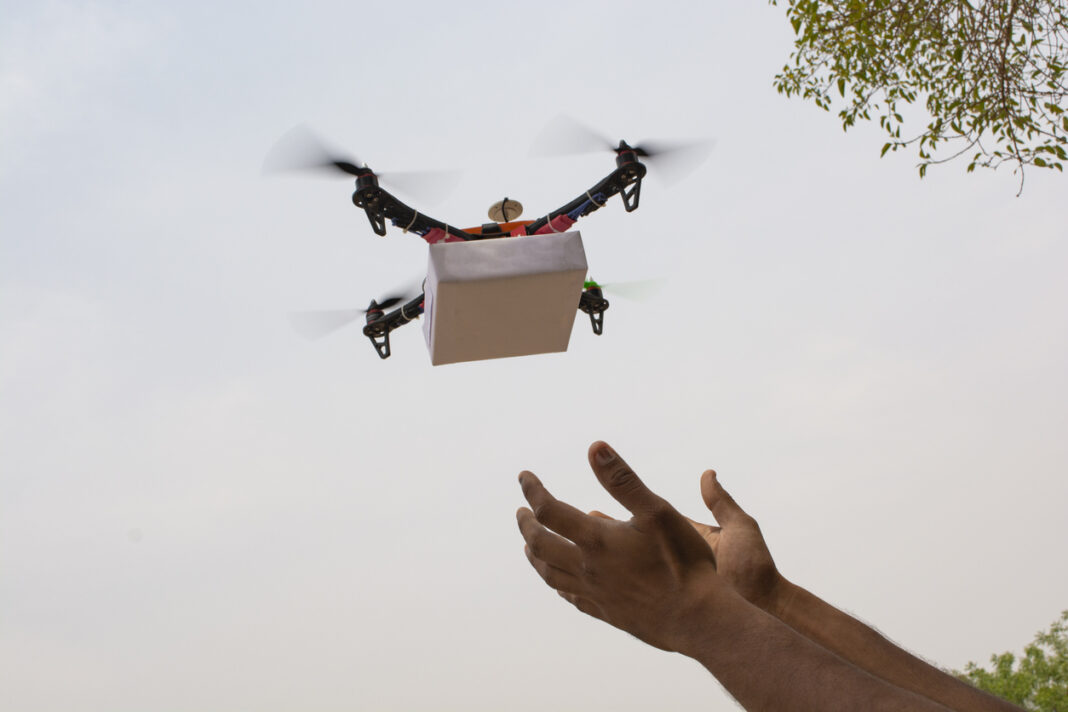A $1.1 million delivery drone headquarters in Mitchell is now one step closer for Wing, as their development application to refurbish a warehouse space was approved by the ACT Planning and Land Authority.
In the development application, submitted last year, Wing, a sub-entity of Google’s parent company Alphabet Inc., stated their refurbished base of operations would see the “existing warehouse at the Mitchell site be retrofitted to accommodate Wing’s drones and drone charging pads”.
“Wing also plans to co-locate their drone operations at the Mitchell site with a small number of food merchants, health and over-the-counter medicine merchants, as well as small businesses from the Mitchell and Gungahlin area,” the application read.
In other news, a 13 March hearing for the Legislative Assembly’s inquiry into drone delivery trials in the ACT has heard that for 17 months Wing’s drone delivery trials operated in south Canberra without any kind of noise limit due to a legislative black hole spanning the ACT and federal governments.
While Airservices Australia has primary responsibility for the noise impact of the operation of aircraft, Civil Aviation Safety Authority (CASA) executive manager Dr Jonathan Aleck told the hearing that Airservices are not currently equipped “or inclined to measure the effects of relatively small drone activity at the lower levels”.
ACT Government deputy chief solicitor Ms Kristin Leece told the hearing the ACT Government is unable to perform any role in noise management around drones.
She said Access Canberra, which includes the Environment Protection Agency (EPA) as one of their branches, goes about measuring noise in a structured fashion that would not facilitate drones.
“The practicality of measuring noise as it relates to a drone which may pass over the top of someone’s residence for a matter of seconds would pose some challenges,” she said.
CASA branch manager Mr Luke Gumley told the hearing that while CASA does not have a framework to assess noise, there are restrictions to the times of day and days of the week that operations could occur.
“Whilst we did not use the decibels or set particular noise limits, we used the time limitations of the ACT Government document to formulate part of our exemption.”
Wing CEO James Burgess had told an inquiry hearing a week earlier that throughout their Bonython trial, they engaged a third-party consulting firm to take measurements for them.
“Those were 62 decibels measured at 25 metres,” he said. “The sound may not be high … but we admit that it is a unique sound and it really draws attention.
“The new aircraft that we are going to be operating in the Mitchell area in the future has measured at 55 decibels, so a seven decibel reduction, which is quite significant.”
Mr Burgess also noted that the Wing team tried to respond quickly to negative noise-related feedback while based in Bonython.
“As soon as we could, after hearing some of that feedback, we adjusted our flight routes. We slowed our aircraft down in the transit mode of flight, which makes them quieter.”
For more:



